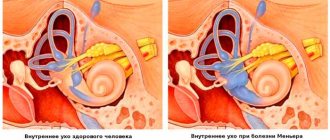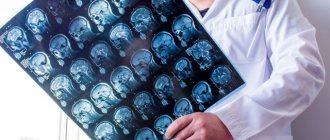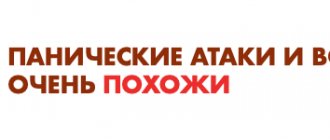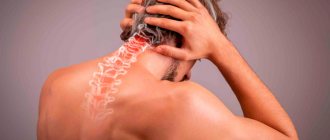Weather dependent
The situation, which does not require serious medical intervention, is explained by sensitivity to atmospheric and climatic changes. It has been noticed that some people react painfully to both solar activity and a decrease in atmospheric pressure. In such situations, they experience a narrowing of vascular tone, which leads to moderate anemia. If at the same time internal pressure tends to increase, heaviness in the head, pain, weakness and weakness occur.
When “flares” occur on the Sun, causing magnetic storms, some people experience blood thickening. Since hemoglobin contains large volumes of iron, when magnetic activity increases, it attracts its own elements, blinding red blood cells. Clots form that block small capillaries, oxygen starvation occurs again, causing a person to feel weak, tired, dizzy and in pain.
Temperature effects on blood vessels are also observed. An increase in temperature affects the dilation of blood vessels, and a cold snap - on the contrary. Improper regulation of this mechanism in vegetative-vascular dystonia leads to a deterioration in well-being. Other unfavorable factors affecting sensations in the head are:
- constant lack of sleep;
- tension of the nervous system when engaged in monotonous work;
- prolonged or uncontrolled use of medications, narcotic drugs;
- drinking alcohol the night before;
- sudden allergic reaction with swelling of brain tissue;
- forced fasting, diets without glucose consumption;
- acclimatization period upon arrival to another area;
- climbing to altitude (altitude sickness);
- high degree of responsibility at work, before an important event;
- head injury.
In most cases, to improve your well-being, it is enough to reconsider your lifestyle, slightly adjust your activity and rest schedule, and balance your diet. If this does not help, and the discomfort increases, you should see a doctor.
Treatment of weakness, dizziness and drowsiness
Medical neurologists have extensive experience in the differential diagnosis and treatment of neuroses. The patient can count on professional assistance, from the first visit to complete recovery. Doctors carry out complex treatment depending on the indications, or rather on the results obtained during the examination.
Any medications for neurosis should be taken as prescribed by a doctor.
To cure neurosis, you will need:
- Drug therapy. The doctor prescribes drugs to correct mood, drugs that improve brain function.
- Psychotherapeutic treatment. It involves eliminating the emerging symptom complex through communication with a psychotherapist. The patient is prescribed group or individual psychotherapy sessions, which are a mandatory component of treatment.
Kazieva Aminat Ziyavovna
Neurologist
Rostov State Medical University
Experience since 2012
Treatment for dizziness, tinnitus, and fatigue primarily focuses on addressing the underlying cause. The doctor must make adjustments to the patient’s lifestyle. During treatment, clinical recommendations should be followed:
- get enough sleep;
- avoid stress, heavy physical labor and emotional overload;
- take breaks from mental work;
- learn relaxation techniques;
- relax after a hard day at work: take a bath, drink warm tea, go for a massage;
- to walk outside;
- to refuse from bad habits.
To strengthen the body, you may need to take vitamin and mineral supplements, adjust your diet, namely include vegetables and fruits in your diet, and avoid unhealthy foods. Dietary nutrition is important for atherosclerosis, hypertension, and other diseases of the heart and blood vessels. Along with the diet, antihypertensives, nootropics, and drugs that lower blood cholesterol levels are prescribed.
If noise in the head and dizziness are caused by osteochondrosis, then drug treatment is supplemented with physiotherapeutic procedures, among which manual therapy is the most effective.
Kazieva Aminat Ziyavovna
Neurologist
Rostov State Medical University
Experience since 2012
For diseases of the hearing aid, antibiotics, magnetic therapy and other physical procedures may be required.
Possible diseases
Heavy sensations in the head against the background of increasing insomnia, lethargy, and cloudiness of consciousness may be a consequence of an underlying disease. The most common pathologies leading to such symptoms are:
- Vegetative-vascular dystonia. It appears during physical activity, when due to a violation of the vascular regulation mechanism, an outflow of venous blood occurs. In this case, the arterial overflows the blood channels in the skull, which creates a pressing feeling, especially in the occipital area.
- Meniere's disease. Pathology of the inner part of the auditory canal. The inflammatory process in the ear leads to excessive effusion of fluid, which accumulates in the ear labyrinth, putting pressure on brain tissue and nerve endings. Not only hearing suffers, but also coordination.
- Problems with the spine. The thinning of the cartilage layers leads to the fact that the discs of the spinal column compress each other, squeezing the tissues located between them, including nerves and blood vessels. As a result, blood flow to the brain slows down, and hypoxia of varying severity begins.
- Upper respiratory tract diseases. Inflamed, swollen, congested sinuses cause a feeling of something heavy accumulating in the head. Infection or other inflammation of the muscles at the base of the skull has the same effect.
- Diseases of the vascular network. Any vascular disorders lead to damage to brain tissue, since it is the first to suffer from a lack of oxygen. Even slight anemia leads to confusion, weakness, and stupor. Among the serious problems are atherosclerosis, vasculitis, tumor processes in the blood channels, and thromboembolism.
A special place is occupied by severe cancer pathologies, aneurysms, deep cysts in the brain and cervical spine. Any abnormally growing objects lead to compression of neighboring tissues, which is why the first sign is heaviness in the head. If such a condition bothers you systematically, there is a reason to seek medical help.
Causes of dizziness, weakness and drowsiness
You should go to the hospital if the following symptoms appear: headache, tinnitus, weakness, drowsiness. There are several reasons for these symptoms. The most harmless ones include physical fatigue, chronic lack of sleep and emotional exhaustion. Clinical manifestations in these cases often occur after a hard day at work or experienced stress.
Kazieva Aminat Ziyavovna
Neurologist
Rostov State Medical University
Experience since 2012
Prolonged psycho-emotional stress can cause neurosis. This is a functional disease of the nervous system, the changes of which are reversible with proper treatment. The disorder is more common in men and women over 30 years of age, but in the fairer sex it occurs in a more severe form. The reason for this is the emotionality of girls.
Manifestations of neurosis arise gradually
Note! Since the nervous system regulates the functioning of all organs, with neurosis the entire body suffers. Disturbances in the functioning of the gastrointestinal tract and cardiovascular system occur. They are the cause of headaches, changes in blood pressure, tinnitus, dizziness, weakness, drowsiness, nausea and other symptoms.
Kazieva Aminat Ziyavovna
Neurologist
Rostov State Medical University
Experience since 2012
The manifestations of neurosis are varied, they are similar to the symptom complex of other diseases. Therefore, only a qualified doctor will be able to understand the true cause of poor health.
When communicating with a doctor, you need to accurately describe the nature of the pathological symptoms
An experienced doctor will conduct a comprehensive examination. It will eliminate other, no less common causes of noise in the head, weakness, dizziness and drowsiness:
- vascular diseases of the neck and head: atherosclerosis, aneurysm, arterial hypertension, hypotension;
- traumatic brain injuries;
- brain tumors;
- acoustic neuritis;
- chronic otitis;
- Meniere's disease;
- impaired blood supply to the brain due to osteochondrosis of the cervical spine;
- anemia;
- diabetes;
- endocrine disorders;
- menopause in women;
- taking medications: hormonal drugs, painkillers, antipsychotics;
- intoxication with alcohol, drugs, food.
Tinnitus, dizziness and loss of energy are common symptoms in men and women, which can indicate a wide range of pathologies, from simple fatigue to brain diseases. We cannot ignore the deterioration of our health status. It is worth seeking advice from a neurologist from the SmartMed clinic by calling @.
Kazieva Aminat Ziyavovna
Neurologist
Rostov State Medical University
Experience since 2012
How to understand the reason
In any case, you cannot guess on your own what caused the unpleasant condition. You need to go to the doctor and get checked. At the initial stage, it is enough to consult with a therapist, who, if necessary, will refer you for examination to other specialized specialists. It is impossible to determine the problem by eye, so research manipulations will be prescribed. To do this, carry out the following procedures:
- Laboratory analysis of blood and urine. The inflammatory process, anemia, sugar and cholesterol levels are detected.
- Doppler ultrasound of neck vessels. Shows the condition of the blood channels in this area.
- MRI of the brain. Detects any disturbances occurring inside the skull.
- CT scan of the brain and sinuses. Helps to specifically study the structures of the skull, the cavities inside it, the condition of the mucous membrane, the presence of inflammation and accumulation of fluids.
Tomographic scanning methods are the most informative, since without instrumental intervention they help to see any anomalies of varying complexity in the images. Only through MRI and CT can one recognize a serious disease at an early stage, record possible complications, and plan subsequent treatment.
Cervical headaches - diagnostic methods
To treat a cervical headache, it is important to undergo a complete examination and determine its exact cause. The Clinical Institute of the Brain has all the conditions for an accurate and comfortable diagnosis of pain, as well as the necessary technical base. Specialists will select an individual program, during which it will be possible to establish the disease and its stage. For pain that affects the head and neck, the following techniques may be informative:
- blood and urine testing - analysis will detect inflammatory processes, as well as various metabolic disorders;
- X-ray is the first way to detect spinal injuries, neoplasms, curvature and other pathologies;
- Ultrasound examination of the vessels of the head and neck is an important diagnostic method, thanks to which the degree of blood supply to the brain can be assessed;
- computer or magnetic resonance imaging are more informative and accurate techniques that are prescribed only when necessary, including when the problem area is not sufficiently visualized on x-rays.
Doctors at the Clinical Institute of the Brain offer only those examination methods that are necessary to obtain a complete clinical picture of the disease. Our center does not use standardized schemes, but programs developed individually for each patient. The presence of a modern technical base allows you to make an accurate diagnosis in a minimum amount of time.
Diagnostic features
Standard manipulations in the form of ultrasound, analytical tests, and x-rays are carried out in any clinic at the place of treatment, but tomographic scanning will require special conditions. They are not always available in government agencies. To find clinics with the right equipment and trained experts, use our appointment service. Here you can find all the diagnostic centers in the city, which can be compared according to various parameters: reviews, ratings, prices, discounts, location, types of equipment, etc. Choose the services you need, call the service staff, book any procedures on special terms.
Treatment methods
For patients with neck and head pain, treatment is prescribed individually. The regimen may include several stages aimed at eliminating the cause and symptoms that cause discomfort in everyday life. The Clinical Brain Institute has the option of inpatient treatment for patients who need constant supervision from specialists or are undergoing a course of procedures at the center. However, in most cases there is no such need.
Drug treatment
An important stage in the treatment of cervical headaches is a properly selected course of drug treatment. For each patient, medications are selected that will affect the cause of the disease and alleviate its symptoms. The course may consist of medications from different groups, including:
- antispasmodics - drugs that eliminate vascular spasms and restore normal blood supply to brain tissue;
- non-hormonal anti-inflammatory drugs - they are prescribed both in the form of tablets and in the form of ointments for external use;
- muscle relaxants - specific drugs that cause relaxation of skeletal muscles during spasms;
- chondroprotectors - drugs for nutrition and restoration of cartilage tissue;
- vitamin complexes.
It is important not to self-medicate and independently select medications for headaches. Each of the drugs is effective if taken for certain indications, and also correctly combined with other medications. Doctors at the Clinical Institute of the Brain are specialists with many years of experience, so they will help you choose the most effective and safe medication regimen.
Physiotherapy and massage
One of the most effective additional techniques prescribed for headaches is massage. Sessions must be conducted by a specialist with experience in therapeutic massage, and a course of procedures will be required for the desired effect. Methods are prescribed individually. In some cases, the doctor may recommend self-massage techniques, as well as massagers for home use.
A positive effect is also achieved by physiotherapeutic procedures. They are carried out to accelerate metabolism and local blood circulation through the use of various irritants. In the neck area, methods such as laser therapy, electrophoresis, magnetic therapy and paraffin baths are used.
Surgery
Surgery is a method that is used only when strictly necessary. It is carried out if conservative treatment does not produce results, and the disease poses a danger to the patient’s life. Surgical intervention may be necessary for injuries and malunion of fractures, hernias, vertebral displacement and other pathologies that tend to progress. During the operation, all bone fragments (osteophytes) that can injure surrounding tissue are removed. Next, you may need to immobilize adjacent vertebrae or replace joints with implants.
Clinical symptoms
Symptoms of retardation usually manifest themselves as follows:
- the patient becomes sluggish;
- a person begins to suffer from memory lapses;
- the patient can remember practically nothing for a long time.
Those around him think that all his thoughts are very difficult for him - and this is indeed true. Sometimes such a patient cannot answer the question asked on time and correctly, plunging into a stuporous state. The patient's voice is too quiet and even too calm, reasoning is accompanied by sluggish movements and facial expressions. People want to be in bed or lean on something substantial as soon as possible due to increasing muscle weakness.
All of these signs certainly do not occur at the same time, but if any of the above symptoms appear, the person probably needs professional medical help. An important factor: the degree of manifestation and severity of symptoms depends on what type of disease causes it. When the central nervous system is damaged, manifestations of lethargy are accompanied by constant drowsiness and headaches, which in the future cannot be relieved with medications. Memory becomes worse, as does concentration. Patients who suffer from progressive pathologies of the central nervous system are prone to aggressive attacks that have no basis. They tend to interpret messages addressed to themselves incorrectly, and in the morning they often experience attacks of nausea and vomiting.









